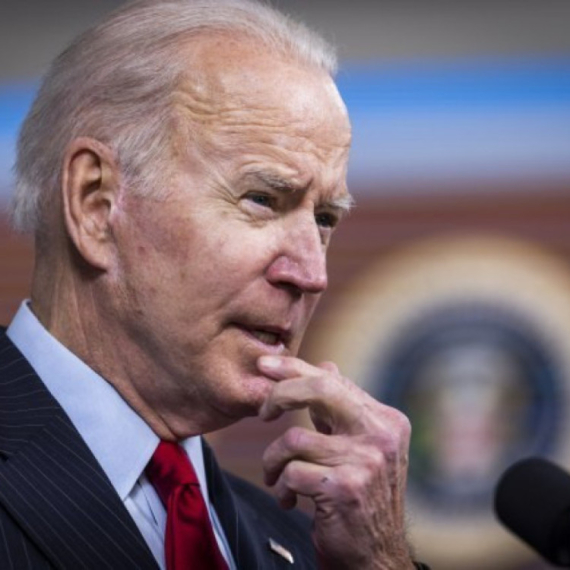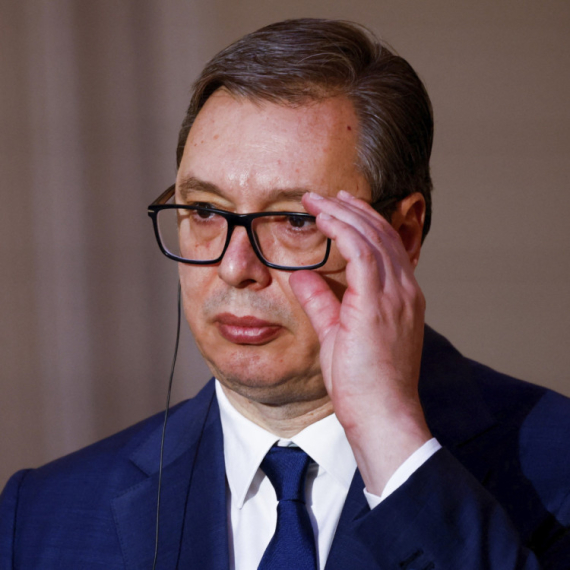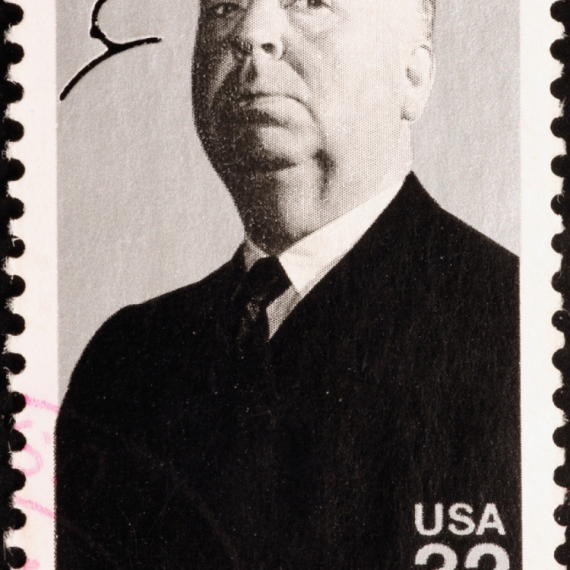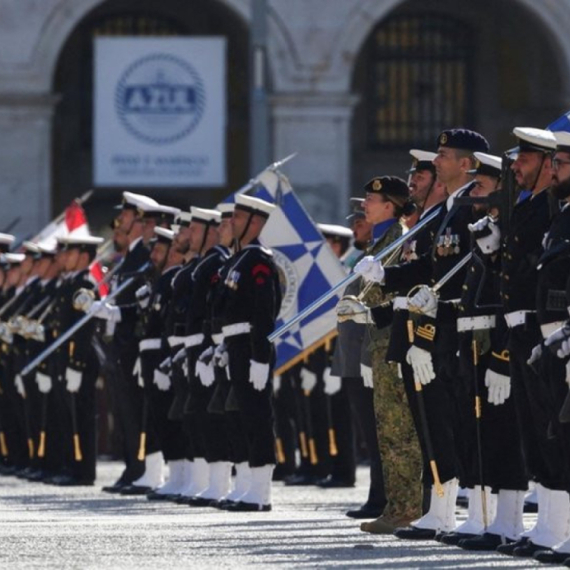Central bank chief denies reports of "hard currency drain"
National Bank of Serbia (NBS) Dejan Šoškić stated on Tuesday that Serbia's level of foreign-currency reserves is the same as in mid-December of last year.
Tuesday, 21.02.2012.
16:29

National Bank of Serbia (NBS) Dejan Soskic stated on Tuesday that Serbia's level of foreign-currency reserves is the same as in mid-December of last year. He thus denied media reports about a significant drop in the reserves. Central bank chief denies reports of "hard currency drain" Belgrade-based daily Blic wrote today that "January’s hard currency drain convincingly highest in past five years", with EUR 518mn "leaving Serbia through banks in January". According to the article, the reserves decreased by a total of EUR 454 mn". "According to the data of the National Bank of Serbia a total of EUR 728mn drained abroad from Serbia-based banks in 2011," the newspaper said. Soskic reacted today by saying that there was "only a technical fluctuation in the level of foreign currency reserves and nothing more than that". There are no alarming developments on the market, although certain media writings could lead to the wrong impression, the central bank chief added. "It is true that, due to the introduction of the standard Basel II, which limited banks' exposure to their parent banks abroad, there was a short-term transfer of money from their foreign currency accounts abroad to the required reserves of NBS at the end of 2011, but everything got back to normal after December 31," he said. At a meeting of the National Assembly's Finance Committee, where possible consequences of the delay in giving positive review of the precautionary arrangement with the IMF are being discussed, Soskic said that everything has to be done in order to get the opinion as early as mid-2012. He pointed out that the arrangement with the IMF is very important, bearing in mind the current circumstances on the international market and possible additional risks. According to Soskic, it is possible that there will be deterioration in the assessment of investment risk in Serbia, and if the risk grows, then the interest rates and the cost of financing the public debt do so as well, which leads to a cut in investments. The governor said that the arrangement with the IMF is a confirmation that Serbia is on the threshold of sustainable development, that it is fiscally responsible and will not be in a position to be unable to meet its obligations. Soskic stressed that 2012 is important in terms of economic activities, but also because of the way the international institutions will treat a country like Serbia. Because of that, NBS was "conservative" when it announced its assessment of the expected economic growth, he said, and added that it is realistic to expect that revenues would fall together with economic activities, and that, on the other hand, the public debt would exceed the limit of 45 percent of GDP. Soskic also said that it is not good for the country to "be on the edge," which is why he believes that Serbia needs a serious analysis of the situation and preparation for different scenarios in the next period. Dejan Soskic (Tanjug, file) Blic Tanjug
Central bank chief denies reports of "hard currency drain"
Belgrade-based daily Blic wrote today that "January’s hard currency drain convincingly highest in past five years", with EUR 518mn "leaving Serbia through banks in January". According to the article, the reserves decreased by a total of EUR 454 mn"."According to the data of the National Bank of Serbia a total of EUR 728mn drained abroad from Serbia-based banks in 2011," the newspaper said.
Šoškić reacted today by saying that there was "only a technical fluctuation in the level of foreign currency reserves and nothing more than that".
There are no alarming developments on the market, although certain media writings could lead to the wrong impression, the central bank chief added.
"It is true that, due to the introduction of the standard Basel II, which limited banks' exposure to their parent banks abroad, there was a short-term transfer of money from their foreign currency accounts abroad to the required reserves of NBS at the end of 2011, but everything got back to normal after December 31," he said.
At a meeting of the National Assembly's Finance Committee, where possible consequences of the delay in giving positive review of the precautionary arrangement with the IMF are being discussed, Šoškić said that everything has to be done in order to get the opinion as early as mid-2012.
He pointed out that the arrangement with the IMF is very important, bearing in mind the current circumstances on the international market and possible additional risks.
According to Šoškić, it is possible that there will be deterioration in the assessment of investment risk in Serbia, and if the risk grows, then the interest rates and the cost of financing the public debt do so as well, which leads to a cut in investments.
The governor said that the arrangement with the IMF is a confirmation that Serbia is on the threshold of sustainable development, that it is fiscally responsible and will not be in a position to be unable to meet its obligations.
Šoškić stressed that 2012 is important in terms of economic activities, but also because of the way the international institutions will treat a country like Serbia.
Because of that, NBS was "conservative" when it announced its assessment of the expected economic growth, he said, and added that it is realistic to expect that revenues would fall together with economic activities, and that, on the other hand, the public debt would exceed the limit of 45 percent of GDP.
Šoškić also said that it is not good for the country to "be on the edge," which is why he believes that Serbia needs a serious analysis of the situation and preparation for different scenarios in the next period.

























































Komentari 0